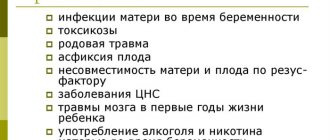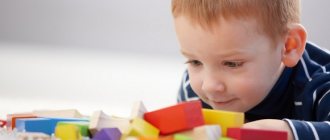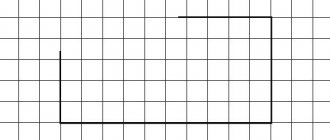Topics of consultations between a speech therapist teacher and parents in kindergarten
Chupryakova Marina
Topics of consultations between a speech therapist teacher and parents in kindergarten
TOPICS OF CONSULTATIONS BY A Speech-Language Pathologist FOR PARENTS
1. What is the work of a speech therapist teacher ?
2. Correct speech is the key to a first-grader’s success.
3. Stages of work to correct sound pronunciation.
4. Recommendations from a speech therapist to parents of children with speech problems.
5. Speech therapy work with children.
6. Diagnosis of children’s speech readiness for school (presentation)
.
7.Articulation gymnastics: significance and recommendations.
8. Articulation gymnastics in pictures.
9. Comprehensive development of correct speech.
10. Age-related features of children’s speech development.
11. The speech of adults is a role model.
12. A collection of speech therapy tips for parents .
13. Speech therapy dictionary for parents .
14. Speech therapy recommendations for parents of first-graders .
15. That insidious “R”
.
16. System of didactic games and exercises for speech development.
17. What if the child does not speak?
18. A child’s speech at his fingertips.
19. Games and gaming techniques for the development of fine motor skills.
20. Features of communication of 3-year-old children.
21. “Sound imperfection”
of children's speech .
22. How to form correct speech?
23. What is phonemic awareness?
24. How do we speak? (see the book Baby Speech Development)
25.Sound and speech development: from the first cry to the first words.
26. The influence of the speech environment on the early speech development of a child.
27. How to develop speech skills?
28. Formation of speech structures .
29. Children's word creation : “for”
and
"against"
.
30. Speech development in twins.
31. How does lack of communication with mother affect children’s speech development?
32. Left-handed child and his speech development.
33. Underdevelopment or disorder of speech development?
34. Features of the development of children’s speech in the preschool period.
35. What to answer “why”
?
36. Collaborative work between a speech therapist and parents as one of the conditions for successful correctional work with children with speech disorders.
37. The role of parents in the development of a child’s speech.
38. Do your child’s speech problems bother you?
39. When to contact a speech therapist?
40. Mistakes made by parents when teaching children to read at home.
41. Stages of children learning difficult sounds.
42. Pure talk is a tool that increases the effectiveness of correctional and speech therapy work with children.
43. Prevention of dysgraphia in preschool age.
44. Automation of sounds at home.
45. Finger games in the kitchen.
46. Development of speech breathing in children with speech disorders.
47. Can parents correct their child’s speech themselves?
48. Delayed speech development, what is it?
49. How to properly teach a child to read and write.
50. How to organize speech therapy classes at home.
Who is a speech therapist and what is a speech therapy group?
Very often in my practice I have encountered parents who are afraid to go with their child to a speech therapist, and what can we say about the speech therapy group, for many parents it was simply a disaster. I’ve often heard the following phrase: “To a speech therapy group? Is my child a fool?”, or: “I couldn’t dare to come to a consultation with a speech therapist with my child, but what if he finds something.”
Many parents wait until the last minute, in the hope that speech defects will go away on their own with age. We turned to a speech therapist for help when the child was already going to school (grades 1, 2, 3), at this age it is much more difficult to work on eliminating defects, as a rule, at this age, if the child does not pronounce sounds correctly, disorders such as dyslexia and dysgraphia (reading and writing disorders), this requires long-term systematic correction. Let's talk a little about who a speech therapist is, when you should contact him and what a speech therapy group is and why it is needed.
Competence of a speech therapist
A speech therapist is a teacher who eliminates various speech disorders in children, adolescents, and adults. In addition to pedagogical knowledge, a speech therapist also has the basics of medical knowledge, because speech is a mental process and a speech therapist must understand the causes of speech disorders in order to choose the right method for correcting a particular speech disorder. A speech therapist can diagnose and predict a child’s speech development from the first days of life. For example, a speech disorder such as dysarthria (impairment of the pronunciation aspect of speech caused by insufficient innervation of the speech apparatus) can be diagnosed in a child from the first months of life and preventive work can be carried out. Early diagnosis of speech defects and work on their elimination will reduce the time for correction and increase the chances of success.
When should you contact a speech therapist?
If at the age of 2 - 3 months the child does not experience humming, but by the age of 6-7 years, there is reason to seriously think about it; most likely, you cannot do without the help of a professional speech therapist. If by the age of one year the baby does not try to pronounce words, this is also evidence of some kind of violation. A serious reason for contacting a speech therapist is the absence of words and phrases in your child’s speech if the child is over 2 years old. Consultation with a speech therapist at the age of three is recommended for all children without exception, regardless of whether they have speech defects or not. By the age of five, speech is usually fully formed, all sounds must be pronounced clearly and correctly, the baby must be able to construct phrases and sentences, retell short tales, stories, and invent his own stories.
Speech therapy group of kindergarten
This is a specialized kindergarten group in which children with similar speech defects with intact hearing and intelligence are enrolled, usually at the age of 5 years for two years of study, after passing the PMPK (psychological-medical-pedagogical commission). The group capacity is 12 people. The group works from 7.30 to 18.00. The group is staffed by a teacher - a speech therapist, 2 teachers, and an assistant teacher. Speech therapy classes are conducted daily, both frontal (with the entire group or subgroup of children) on the formation of lexical and grammatical categories and coherent speech, the formation of phonemic hearing, and individual ones on the correction of sound pronunciation. All other classes are conducted in the same way as in mass kindergarten groups. In the evening, after sleep, correctional work is also carried out, aimed at consolidating the acquired knowledge and skills in speech therapy classes. This work is carried out by educators on the instructions of a speech therapist. In frontal speech therapy classes, children replenish their vocabulary in a playful way, learn to correctly use lexical and grammatical categories of their native language (formation of plural nouns, diminutive forms of nouns, correct use of prepositions...), develop coherent speech (retell stories, invent their stories, fairy tales, make up descriptive stories...). In classes on the formation of phonemic awareness, they learn to isolate a given sound from a number of other sounds, determine the place of a sound in a word, divide words into syllables, develop graphomotor skills and much more. For each child, a general notebook is created, where weekly on weekends the speech therapist gives recommendations to parents on working with children at home. The speech therapy group provides good preparation for children for school.





